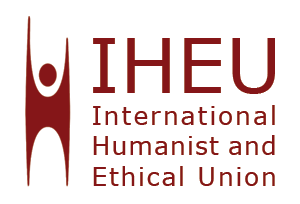 Published today [10 December] by the International Humanist and Ethical Union (IHEU), the third annual Freedom of Thought Report offers a survey of persecution of and discrimination against non-religious people, with an entry for every country across the world.
Published today [10 December] by the International Humanist and Ethical Union (IHEU), the third annual Freedom of Thought Report offers a survey of persecution of and discrimination against non-religious people, with an entry for every country across the world.
In 2014, in addition to laws such as those targeting “apostasy” and “blasphemy”, the report shows a marked increase in specific targeting of “atheists” and “humanism” as such, using these terms in a broadly correct way (the users know what they are saying) but with intent clearly borne of ignorance or intolerance toward these groups.
To put it more plainly, nonreligious people are being targeted as a distinct minority group in various countries around the world. The report also indicates that hateful speech against atheists does not come exclusively from reactionary or radical religious leaders, but increasingly from political leaders, including heads of state.
Cases covered in the report include the Malaysian prime minister Najib Razak, who this year labelled “humanism and secularism as well as liberalism” as “deviant” and a threat to Islam and the state itself, in a speech where he also denied that Malaysians had any right to “apostasy” (leaving Islam).
Saudi Arabia is criticised for a new law equating “atheism” with “terrorism”. The very first article of the kingdom’s new terror regulations banned “Calling for atheist thought in any form, or calling into question the fundamentals of the Islamic religion”.
Even the supposedly secular regime of Egypt’s president Sisi was found to target atheists directly, through what the report calls “an organized backlash against young atheists”. Beginning in June, Nuamat Sati of the Ministry of Youth announced a campaign to spread awareness of “the dangers of atheism” and why it is “a threat to society”, so that young atheists in particular, who are increasingly vocal on social media would be given “a chance to reconsider their decisions and go back to their religion.”
In the past few months, Egyptian authorities have detained young atheists who appeared on TV media and Youtube videos talking about their right to express atheist views, and in a worrying an unusual development in November, Christian churches actually “joined forces” with Egypt’s AlAzhar in another anti-atheism campaign, saying that “Society should resist this phenomenon [of atheism]”.
Previous editions of the Freedom of Thought Report, which considers and rates every country in the world for anti-atheist persecution, found that almost all countries discriminate against the nonreligious, in some cases through religious privilege or legal exemption, with the worst countries refusing to issue identity cards to the nonreligious, taking children from atheist parents, or sentencing “apostates” to death.
The 2014 edition of the report notes: “This year will be marked by a surge in this phenomenon of state officials and political leaders agitating specifically against nonreligious people, just because they have no religious beliefs, in terms that would normally be associated with hate speech or social persecution against ethnic or religious minorities.”
Fortunately, the situation in South Africa is nowhere near as serious as the examples given above. However, this does not give South Africans cause for complacency. Our schools routinely violate the National Policy on Religion and Education, to the extent that the organisation OGOD has recently instituted court proceedings against six public schools who assert their “Christian character”, despite our public schools having an obligation to be secular.
It is not only school principals and governing boards who privilege one religion over others, rather than supporting religious freedom through remaining neutral and encouraging a secular approach to religion, whereby religious education is welcome but religious indoctrination precluded.
The MEC for Education in Gauteng, Panyaza Lefusi, boasts of having distributed 50 000 Bibles to schools in his first 100 days in office – with no mention of also having distributed Korans, or books on Humanist ethics and thought. This constitutes not only a violation of the Policy, but if the Bibles were paid for with public funds, also a clear abuse of those funds in that revenue from the taxpayer cannot be used to support what amounts to State-sanctioned religion.
The Freedom of Thought Report is published by the International Humanist and Ethical Union (IHEU) with contributions from independent researchers and IHEU Member Organisations around the world. The South African Member Organisation is the Free Society Institute.
Websites:
freethoughtreport.com and iheu.org; fsi.org.za (South Africa)
For further information, interview or comment please email:
contact@fsi.org.za; (Free Society Institute, for South Africa-specific issues) or the IHEU (report@iheu.org; +44 207 490 8468.
















